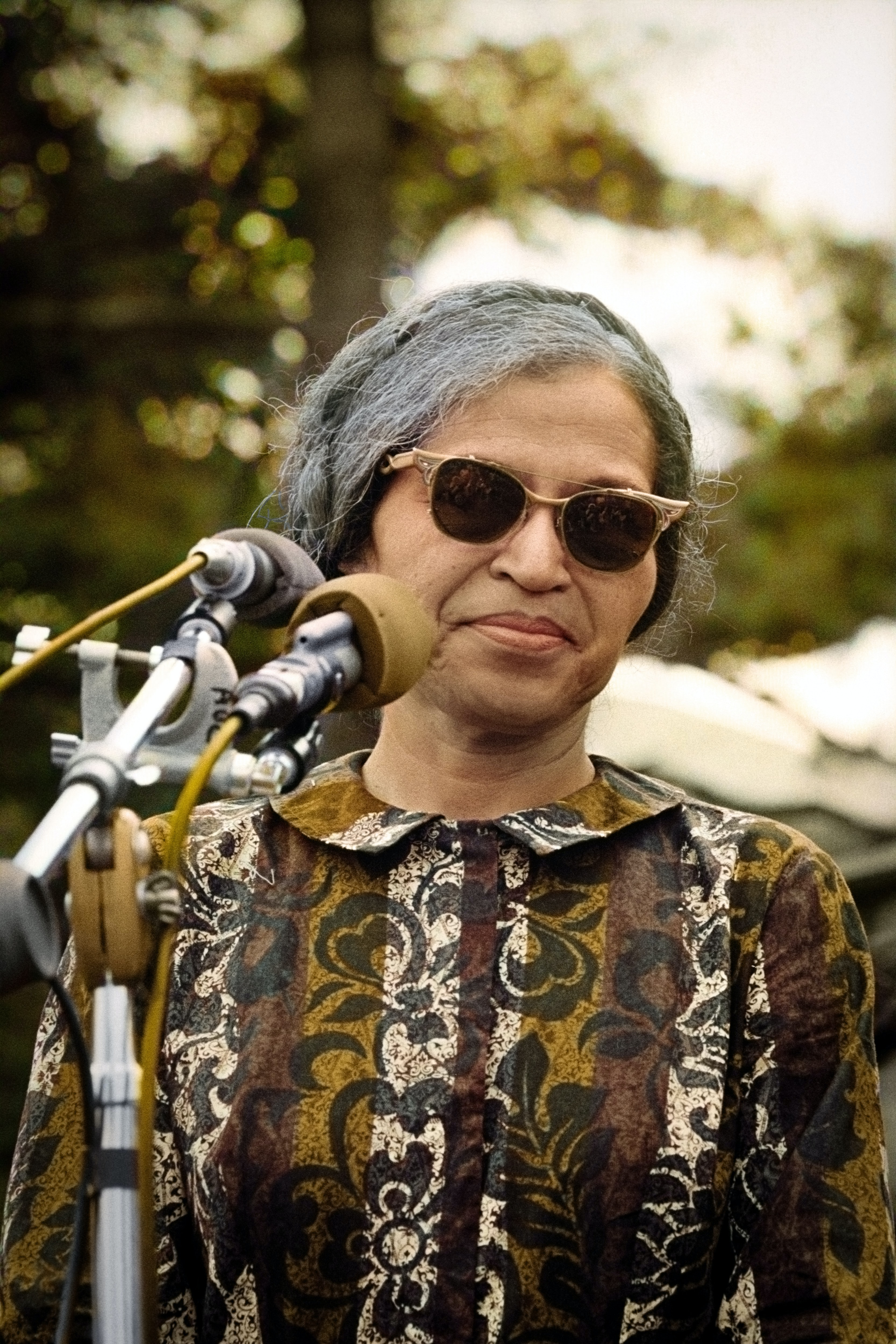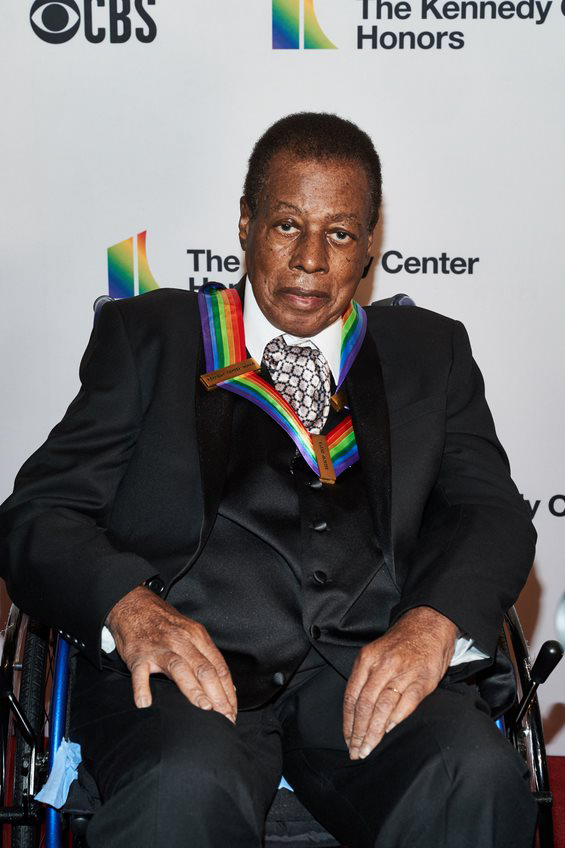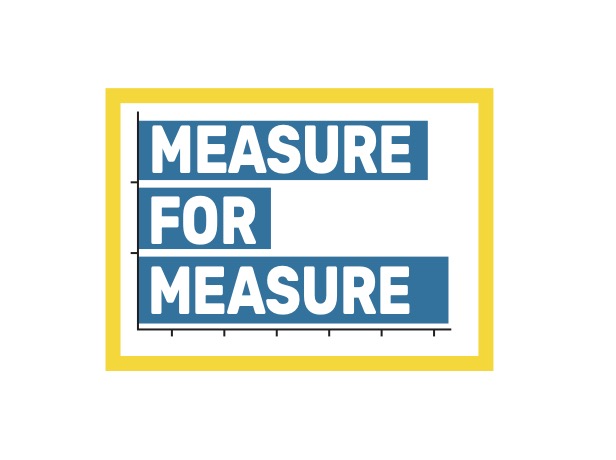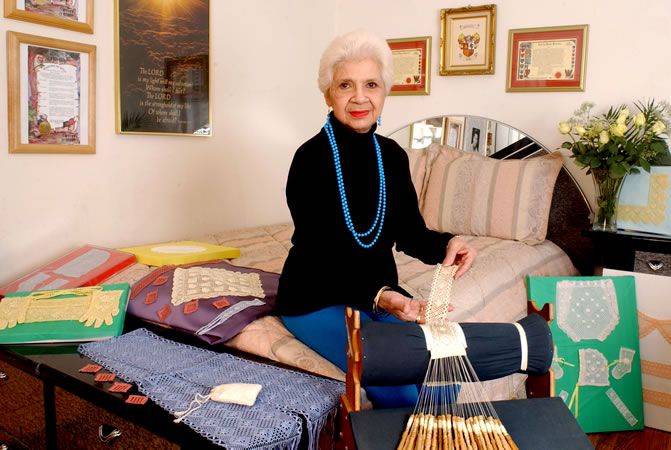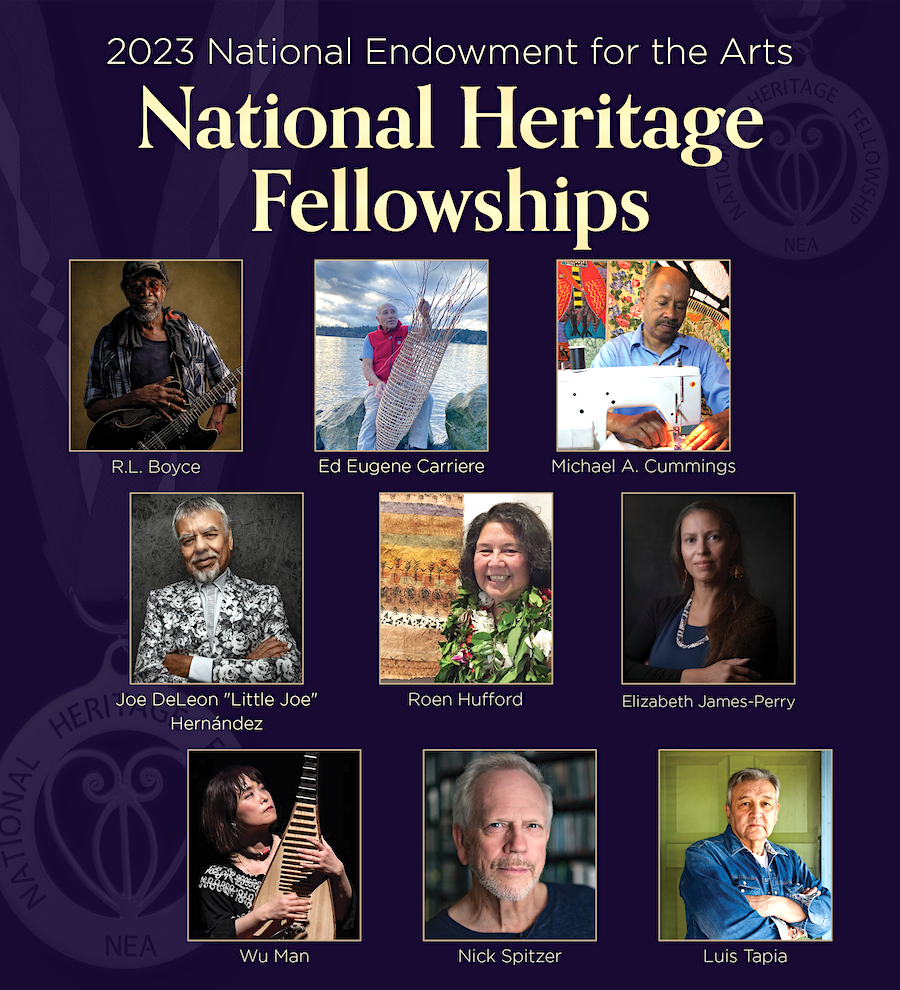Janis Burley Wilson
Music Credit: “NY” composed and performed by Kosta T, from the cd Soul Sand, used courtesy of Free Music Archive
Jo Reed: From the National Endowment for the Arts, this is Art Works, I’m Josephine Reed
Janis Burley Wilson: I'm very passionate about what I do. I care about it deeply, and I also feel a responsibility to the African American community, the Black community, to the community as a whole, to showcase and highlight and illuminate the gifts, the challenges, the triumphs of Black artists-- here in our region, and also globally. I think that we have an opportunity to have a global reach with our programming, and I'm committed to that.
Jo Reed: That was Janis Burley Wilson—she is the President/CEO and Artistic director of the August Wilson African American Cultural Center a culturally specific multidisciplinary arts center, located in Pittsburgh, Pennsylvania. The Center presents artistic, educational, and community programs that tell the multiplicity of stories of the African-American experience. The building --a show-stopper designed by Allison Williams-- offers multiple exhibition galleries, a 492-seat theater for performances, an education center for classes, lectures and hands-on learning, and spaces for community programs and events. Here’s a quick background: The building opened to the public in 2009, closed in 2014, and then the Center was reestablished with a new 501(c)(3), new board, and new president/CEO and Artistic Director-- Janis Burley Wilson. The August Wilson African American Cultural Center reopened in 2017—and it’s been going strong ever since. Janis Burley Wilson is a cultural innovator with over two decades of leadership in Pittsburgh. And we’re kicking off Women’s History Month by looking at some of the cultural programming Janis has brought to the city over the years. Under her guidance, the August Wilson African American Cultural Center offers year-round visual arts, music, dance, theater, and film programs including the annual Pittsburgh International Jazz Festival; Highmark Blues & Heritage Festival; We Want the Funk Festival; the Black Bottom Film Festival; and free, family-friendly Community Days. It is focused on the Pittsburgh community--in fact, the gallery exhibitions and 50% of the center’s programming are free and open to the public. The Center both shines a spotlight on future innovators in arts and culture and advances the legacy of its namesake, Pittsburgh native August Wilson. The center isn’t just named for August Wilson —he is its driving force.
.And that where I began my conversation with Janis Burley Wilson—who is no relation to the playwright--I asked her about the centrality of August Wilson’s vision to the mission and work of the center, And just for some context when we spoke, I was recovering from Covid and Janis was recovering from bronchitis—all coughs have been edited out…
Janis Burley Wilson: Yes. We are a performing arts center that presents work in a wide variety of genres, but influenced by the creative process of August Wilson, influenced by the themes that are found in his plays, and we engage artists across genres to tell the story of the African American experience and the African diaspora through their work, which is what August Wilson was known for: telling the story of the African American experience throughout the 20th century-- the challenges, the triumphs, the joys, the pain, love, betrayal, just human concepts, but told through an African American lens. And that's what we do at the August Wilson African American Cultural Center. We believe it's an important venue and asset, not just for the African American community, but for the entire community, to learn about the African American experience, and to appreciate the value of the art and culture that has stemmed from the African American in this United States, and people that represent the African diaspora.
Jo Reed: May we talk about the building itself for a moment, because it is a piece of art inand itself—it is jaw-dropping.
Janis Burley Wilson: Yes. It's an extremely modern building, a lot of steel <laughs> and a lot of glass, so you can see the city from inside the building, and people on the street can see inside the center, and really kind of place themselves there at the August Wilson African American Cultural Center. It represents the ships that carried people and culture from Africa to various parts of the world. If you're standing across the street and look at the building, it looks like a ship. And it's located right at the gateway of the Cultural District. So, as you are entering the Cultural District, it's the first thing that you see. It's about 66,000 square feet, and just a warm and stunning building. I have to say, every day when I go into the office, and I walk through the halls of the August Wilson Center, I'm struck by the beauty, and just feel very fortunate to have such a great place to work. <laughs>
Jo Reed: Oh, yeah. <laughs>
Janis Burley Wilson: And such a beautiful place.
Jo Reed: It really is. You know, you've mentioned the Cultural district. What is the Cultural District in Pittsburgh? How is it demarcated? What goes on in that area?
Janis Burley Wilson: Well, we are very fortunate to have a Cultural District in downtown Pittsburgh. It's a 14-block area where you'll find a number of theaters, galleries, restaurants, different venues that represent food and culinary art, visual art, theater and dance; and the resident companies in the Cultural District include the Pittsburgh Cultural Trust, the Pittsburgh Symphony, the Pittsburgh Ballet Theatre, Pittsburgh Public Theater, the Civic Light Opera, August Wilson African American Cultural Center. So, as a person who is traveling to Pittsburgh, if you're staying in the Cultural District, you can access all those venues by foot. And so we feel very fortunate to have a thriving Cultural District in our downtown.
Jo Reed: Nearly half your programming is free, and that is not easy, so..
Janis Burley Wilson: No. <laughs>
Jo Reed: ... good for you. And I know it requires real strategic thinking and some sacrifice, and I'd like you to talk about why this is so important to you, and how you make that work.
Janis Burley Wilson: Well, it's important because we want to serve the entire community, if we can, and to eliminate barriers for entry and access to arts and culture. And so, programs like our Community Days, our August Wilson Community Days, or a number of our educational programs, and our visual arts galleries, they are open-- free and open to the public every day. So you don't have to come in and pay $25, and make that visit once a quarter. A young person who's interested in August Wilson's work, or visual arts, can go to the August Wilson African American Cultural Center and spend the day, one day after another, <laughs> if that's what they choose to do. It is very important to us to make the arts and culture accessible, and we're able to do that with very generous support from the Pittsburgh local foundation community. Pittsburgh is known for the generous support of the arts. We also receive a tremendous amount of funding and support from an organization called the Allegheny Regional Asset District, RAD for short, and this organization supports cultural assets in within our county, to make sure for example, the parks are kept beautiful for families to enjoy, so that the August Wilson African American Cultural Center can be open to the public, so that free festivals and things that happen in our city are well supported. And again, just making the arts and culture accessible to everyone, that's something that we're very proud of in Pittsburgh, and we feel very fortunate at the August Wilson African American Cultural Center to be the recipients of that generous support.
Jo Reed: Well, let's talk about some of the programs that you present, specifically. First of all, the center is the home to the Pittsburgh International Jazz Festival. Tell me about that.
Janis Burley Wilson: Well, I am the founder, and I'm also the director of the Pittsburgh International found-- I'm sorry, Pittsburgh International Jazz Festival. It began in 2011. It began as a free festival in the streets of Downtown Pittsburgh, and we present world-renowned jazz legends, emerging artists. There are jam sessions. There are just amazing performances, and people have memories dating back to that year, 2011, of seeing some artists that are really well known now, seeing them for the first time. We take pride in introducing the music-loving community to artists that we feel that they need to know, or they need to hear. That is a festival, now, that has moved to the Highmark Stadium, which is a soccer stadium here in Pittsburgh, Pennsylvania. And after the pandemic, after being shut down for a year for the pandemic, and we did the first virtual jazz festival during that time, we moved to Highmark Stadium from the street, so that we could ensure safety, cleanliness, and space for people to spread out and really enjoy the music. We were the first to adopt a COVID-safe protocol, requiring proof of vaccination for our festival. And that was difficult to institute, but people that attended appreciated feeling safe, and so we will continue to have the festival. It's a ticketed festival now. It's no longer free, but we think that it's a very good move for us. And as we mentioned and spoke about a bit ago, as you said, 50 percent of our programs are free and open to the public. We have to find ways to generate revenue, and this is one of the programs that we have decided will help us to sustain our organization into the future. We also have the Highmark Blues & Heritage Festival, which is another--
Jo Reed: I was going to ask you. Yes, tell me about that.
Janis Burley Wilson: Yeah. It's a music festival. It's five years old. It is a celebration of blues music, but also music that represents heritage of people from around the globe. And you might not know this, but August Wilson was very influenced by blues music, and we felt as though it was a great fit for our center to present a blues festival, because the blues were so influential on August Wilson's work. Ma Rainey's Black Bottom is about Ma Rainey, who is a legendary blues artist, but you find traces of blues music throughout the American Century Cycle. So it was a good fit for us, programmatically. We also have the only dedicated August Wilson exhibit-- permanent exhibit-- in the world. It's called August Wilson: The Writer's Landscape. We collaborated with the August Wilson estate to develop this 4,000-square-foot tribute, in dedication to August Wilson and his work, and his process for the way that he wrote. So, there is a room that represents each play in the American Century Cycle. There's also a replica of a coffee shop-- coffee shops that August Wilson would go to and sit for hours, drinking coffee, smoking cigarettes, and writing. We also have a room that represents his office. We have his actual writing desk, a number of his personal belongings from his library. And the entire exhibit is interactive. It incorporates video, it incorporates sound. There are interactive moments where you can wave your hand over an object, and a video will start to play, to explain what that particular object represents in his writing trajectory. So we're very proud of that. And again, that is an exhibit that is free to the public, so you can walk through The Writer's Landscape as often as you like, and learn about August Wilson's work and his influences. It's narrated by Broadway actors that performed August Wilson's work on Broadway, like Phylicia Rashad, Ruben Santiago-Hudson, and others; Stephen McKinley Henderson. And that is one of the-- that is the crown jewel, I would say, of the August Wilson Center right now.
Jo Reed: I love the idea of, well, his office, obviously, as the central piece, if you will, but the coffee shop, and then the street, because August Wilson is rightly celebrated for centering the lives of Black people in his work, but he was centering the lives of working Black people. His people are everyday people, and he made art from the everyday, and it sounds like you wanted the exhibit to acknowledge and celebrate that.
Janis Burley Wilson: Yes. Yeah. And there are a lot of connections to Pittsburgh within the exhibit; a lot of photography from Teenie Harris, who was a Pittsburgh photographer who documented the African American experience throughout the middle and later part of the 20th century, and a lot of people from Pittsburgh that were involved in the creation of the exhibit, that live and work in the Hill District, where August Wilson grew up. And so we're very, very proud of it, our city's very proud of it, and it was very important to us to engage people from the community that resonated within August Wilson's work, which is the Hill District.
Jo Reed: One recent exhibit at the Center that seems to me is in dialogue with August Wilson in a way, is OPTICVOICES: Mama's Boys. Could you tell us about that extraordinary exhibit?
Janis Burley Wilson: Sure. It's an exhibit that was created by filmmaker and photographer, multidisciplinary artist, Emmai Alaquiva. He is an artist in our brand-new artist residency program, called B.U.I.L.D. , which is supported by the Richard King Mellon Foundation, and Mama's Boys is an interactive exhibition that focuses on the healing of mothers of victims of systemic violence. And it was conceived and curated by Emmai Alaquiva-- who traveled throughout the country, interviewing and photographing the mothers of victims of systemic violence. It incorporates film, augmented reality, music. That exhibit is truly a view into the hearts and the minds of the mothers of victims of systemic violence. They are interviewed, where they get a chance to speak and talk about how they feel, how they're handling what has happened to them, and also giving a view into the lives of the people that were the victims. And it really invites the arts patron into the lives of these mothers and made them think and ponder, "What does healing look like?" So we're very proud of that exhibit. Our hope is that it will travel to other institutions around the country-- we're working on that now. So people in other places will get a chance to see OPTICVOICES: Mama's Boys in the future.
Jo Reed: You also have the Black Bottom Film Festival.
Janis Burley Wilson: Yes. I’m very excited about that. So, the Black Bottom Film Festival is a celebration of Black filmmakers, creators, actors, directors, screenwriters, scenic designers, and this is a program that started six years ago. We took some time off during the pandemic, but we're coming back in fall of 2023. We're thrilled that one of our guests will be Dr. Jacqueline Stewart, who is a host on Turner Classic Movies, and the new president of the Academy of Motion Pictures Museum, in Los Angeles. She will be talking to the descendants of Oscar Micheaux, who is a groundbreaking filmmaker who was Black; a Black man who created films with all-Black casts. He was one of the first to do that, and we will be screening some of his silent films. We’re accepting submissions from independent filmmakers, so those will be screened, and we're really excited about that returning to the August Wilson African American Cultural Center.
Jo Reed: Okay. You are the artistic director, so you have a part in bringing all of this to life. How do you keep your head <laughs> screwed on straight, with all these balls being juggled in the air?
Janis Burley Wilson: <laughs> Yes, that's a great question. Well, I'm very passionate about what I do. I care about it deeply, and I also feel a responsibility to the African American community, the Black community, or just the community as a whole, to really showcase and highlight and illuminate the gifts, the challenges, the triumphs of Black artists-- here in our region, and also just globally. I think that we have an opportunity to have a global reach with our programming, and I'm committed to that. But as far as keeping my head on straight, it's difficult, <laughs> because, as you said, I'm the artistic director, so I'm thinking about what I want to share with our attendees, with our patrons, but I'm also thinking about how to pay for it, how to hire people that also share that passion to fulfill the mission of the center, which is to be a home for art, and storytelling, and exchange of ideas around the African American experience and the African diaspora. Finding people that are committed to that, as well, is not always easy to do, and when we find one another, <laughs> we rejoice in our ability to do that. And I think that we have a great team at the center-- really talented people, a lot of young people-- and they are very committed to the center, and to sharing arts and culture that is grounded or rooted in the African American experience with the world.
Jo Reed: Well, tell me about you. Were you born and raised in Pittsburgh?
Janis Burley Wilson: Yes. My family is an old Pittsburgh family. <laughs> My maiden name is Burley, and my parents grew up maybe two miles from one another, and both had large families that came together, and they are also Pittsburgh lovers, very committed to the city. I went to University of Pittsburgh, so I went to school here, and then I went to graduate school at Duquesne University; again, Pittsburgh. And then I left when I got married, and traveled, but I always ended up coming back to Pittsburgh, because Pittsburgh's a family town, and people joke people from Pittsburgh, we leave, but we always end up coming home. <laughs> We always end up coming home and... and appreciating what we have that's unique to Pittsburgh. And I think Pittsburgh is very strongly family-oriented. We're very proud of our city, proud of one another, and we love to make people that come to Pittsburgh feel welcome, feel a part of our community. And I notice that, when I go other places-- I've done a lot of traveling, but nothing comes close to that family feeling that you feel here in Pittsburgh. So, being at a place like the August Wilson African American Cultural Center, named for a Pittsburgh native, and creating events that bring people together, to reunite, to make new friends, and to celebrate with old friends, is really a gift. I'm very grateful and thankful to be in this role.
Jo Reed: Now, where were the arts in your life, when you were a kid growing up?
Janis Burley Wilson: Oh, all around me. My mother was a schoolteacher, who taught for 33 years and loved fiber art. So, I always watched her sew, watched her quilt. We went to the museum a lot. My father loves music; loves jazz, specifically, so I definitely got that from him. We always heard music in our house. And he, when I was a little girl, he would encourage me to buy records. That's what we would do on Saturdays. We would go to Dorsey's Record Store, in Homewood, which is a predominantly Black neighborhood, where my father's family is from. They're from Homewood, Pittsburgh, PA. And we would go to the record store and spend hours there, buying the 45s that... <laughs> that I heard on the radio. And I still have all of those records, too, and sometimes I steal some of his. He has a really extensive music collection. But it's always been a part of our lives, and so I feel like this is the dream come true, to be able to immerse myself in art and music every day, and get paid for it.
<both laugh>
Janis Burley Wilson: What a gift. Yeah.
Jo Reed: Well, you came to the center with a great career as an arts administrator and an arts presenter. Tell us a little bit about what you had been doing before you came to the August Wilson African American Cultural Center.
Janis Burley Wilson: I was at the Pittsburgh Cultural Trust, which is a large performing arts center. I was there for 15 years, as Vice President of Education and Community Engagement; and, again, another wonderful role. I learned a lot; got a chance to create some signature programs for Pittsburgh’s Cultural District, that are still mainstay programs that attract people from all over the region and outside of Pittsburgh, to enjoy the Cultural District. And I was there for 15 years, so it was great; a great place to train and learn. And I literally moved two blocks away when I <laughs> joined the August Wilson African American Cultural Center, because it was literally just a few blocks from where I was working for 15 years. The Cultural District is very different from what it was when I was growing up in Pittsburgh, so it's been a real joy to see the development of galleries and theaters and restaurants.
Jo Reed: Well, you've been considered a leader in understanding that arts can be a great catalyst for economic development, which is certainly something the NEA highlights, and I'd love to hear you speak a little bit more about that.
Janis Burley Wilson: Sure. The Pittsburgh Cultural Trust is known for using the arts and culture as a catalyst for development. That's basically the premise of the Pittsburgh Cultural Trust, and using the art and the theaters to attract people, to attract entrepreneurs, has been a successful model in Pittsburgh, and has been replicated around the country. But in my role at the Pittsburgh Cultural Trust, I started a program called the Gallery Crawl, which was really a way to experiment with the idea that, what would the Cultural District look like if there were a lot of galleries side by side, and a lot of restaurants and art happening, all at the same time, where you could just come downtown and happen upon art? And when I started the Gallery Crawl in 2004, there was, there was one gallery, one gallery that the Pittsburgh Cultural Trust owned, and then there was another independent gallery. But we would take these vacant storefronts and turn them into galleries for the night, and people would just come downtown, and walk around, and meet their friends. And there weren't a lot of restaurants back then, but slowly, over time, that program created a scene for downtown. You didn't need a ticket. You could just go downtown, and walk around, and enjoy different kinds of art; discover art, discover new genres, decide whether you liked it or not, without a whole lot of investment, because the Gallery Crawl was free. And that's a program that's still going strong, and as leading the August Wilson African American Cultural Center, we participate in the Gallery Crawl. We look forward to that, because it gives us an opportunity to showcase new art, to invite people in, to learn about a program that's coming up, and also to showcase local artists, to give them a platform for their work. That's something that we're really committed to at the August Wilson African American Cultural Center, with our programs like our Community Day. We'll hire a crew of local artists to sell their work, or to perform, or show their film, or talk about their visual art that's on the wall. It's a great opportunity to invite communities together to celebrate art.
Jo Reed: You mentioned, quite casually, that you founded the Pittsburgh International Jazz Festival, and, I mean, this could be a whole podcast in and of itself, but I'm just so curious how you could even begin to begin <laughs> something like that.
Janis Burley Wilson: Well, I was doing jazz programming before the festival started. I started a weekly jazz series in 2003. And working with our local jazz artists here in Pittsburgh, we're so fortunate to have so many talented jazz musicians that live here and work here, that tour around the world with other artists -- these are the best of the best-- and they're friends. And so, in 2003, started a summer weekly program, a summer weekly jazz series, that slowly developed into some ticketed programs. And then, eventually, we decided that it was time for Pittsburgh to have a festival again. A decade had passed before we-- a decade had passed since we had a jazz festival, an annual jazz festival, in the city. And sometimes, when you don't know... you don't know enough, <laughs> you think you can do everything, and I think that that's-- I think that's what made me believe that I could pull it off, is that I didn't know how hard it would be. <laughs> But, again, so fortunate to have so many great jazz musicians in Pittsburgh, and people that love the music, that we all came together to create this thing that has now grown into a destination for people around the world. We have people that fly in from different parts of the world for the festival. One year, we presented a band called El Gran Combo, which is a legendary salsa band. They're like the Beatles in Puerto Rico. And they flew in and did the show, and the streets were just packed with people from all over the country, that came to our city of Pittsburgh to hear this band play. It was amazing. We love inviting people to come and enjoy music with us, and I think that part of the success of the festival is really the people of Pittsburgh, because people are very warm and inviting, and when people travel here from other places, they comment on the feeling, the vibe, that they feel when they come to our festival. It's really a celebration. You look out into the audience, and you see people of all races, and people of varying backgrounds, and they forget about their political views for a minute when that beat drops. <laughs> You know, they love the music together, and then everybody goes on their way. But I think that that's one of the things that I love about what I do, is that there's so much power in art and music that bring people together, that might not normally have anything in common.
Jo Reed: Agreed, agreed.
Jo Reed: So, tell me, what is the most challenging part of the work that you do?
Janis Burley Wilson: Hmm. Well, you know, coming out of the pandemic has been very eye-opening <laughs> for myself and other arts presenters. A lot of studies have taken place in the last two years, to figure out what people want, what they're comfortable with. Are they comfortable returning to the theater? Are they comfortable coming out and being around people? Are they comfortable paying, or do they just want to stay home and watch all of these movie channels? And we're finding that it's not as easy as we thought. People aren't returning as easily and as quickly as we thought they would. I think we all were under the impression that as soon as it was safe to do so, people would flock to the theaters, and flock to different venues, and that's just not the case. So I think we're all trying to-- all of the people that are in this field, as arts presenters, we're trying to figure out what people want, what they're willing to pay for, what they're willing to invest their time on. And nobody really knows the answer, because no one has had an experience like surviving a pandemic before. There's no one we can call and say, "What did you do during that last <laughs> pandemic?" We're all trying to figure it out. And that's been the biggest challenge, I think, for our organization; and also, I would say, learning how to plan for the future that's so uncertain. That's the biggest challenge for our organization, right now. Like, what are-- what's the appetite? What are people willing to do? And people might not even know it yet, <laughs> so it's not like we can just go and ask people, and all of a sudden, we have the answer. Everyone's trying to figure this out, and we just have to be patient with one another, until we under-- have a better understanding of what the world is going to look like, post-pandemic, for arts and culture.
Jo Reed: And what is the most gratifying part of your job?
Janis Burley Wilson: Oh, the most gratifying part, I think, is seeing people react to the music, or the art on the wall; you know, seeing people walk into the OPTICVOICES exhibit, and, rejoice in the fact that healing can occur after something so traumatic happens to a person's family, or people jumping to their feet and clapping for an artist on stage. That's really what's gratifying to me. Seeing groups of students attend a play and learn about an artist. We just had a one-man play called Frederick Douglass Now, with the award-winning actor Roger Guenveur Smith, and we had a student matinee that was completely full, full theater, and the students were hanging on every word, and they had the best questions afterwards. And it just really made me feel like all of this-- all of the work that we put into it is worth it, because there are students that were in that theater -- their lives were changed in some way. They learned something that day. They probably went home and discussed it with a sister, or a brother, or a parent. It makes all the work, all the uncertainty that we discussed, and the <laughs> craziness of being an artistic director and the president, and sometimes a marketing director, it makes it all worth it.
Jo Reed: So, what's ahead for the August Wilson African American Cultural Center in 2023, and what would you hope, five years from now?
Janis Burley Wilson: Well, what's coming up, we have a really exciting season. We are presenting a full season of music: Peabo Bryson; the legendary R&B singer Meshell Ndegeocello; Georgia Anne Muldrow, who's a jazz, sort of neo-soul artist. We have Syncopated Ladies, the tap-dance group. They'll be performing. Nikki Giovanni is coming. And that's just through June.
<both laugh>
Janis Burley Wilson: And then we get ready for a fall of festivals, with the Pittsburgh International Jazz Festival in September, the Black Bottom Film Festival at the end of October, the Highmark Blues & Heritage Festival in November. And then we have our annual Funk Weekend. It's called We Want the Funk Festival, which is a weekend of legendary funk artists. That's in December. So it's a busy time, and lots of educational programs throughout the year, in person and virtually. We also have a wonderful program that I'm really proud of. It's a literary salon program that is curated and hosted by our literary curator poet, Jessica Lanay, and it's called Lit Fridays. It's a monthly program that happens online, where she will interviewer writers, poets, artists, where they talk about their work. They also have another program called Vinyl Report, which is a jazz-music vinyl discussion between our host, Tom Wendt, who's a jazz drummer, and people that love jazz, and they talk about the records that have been most influential for them. And Tom has just this amazing record collection-- thousands and thousands of records-- but also, he's an historian, and he knows every liner note. He knows every detail about where the records were recorded, and who was on the session, and who was doing mixing. I mean, he's just an encyclopedia. So we have a lot of really great programs coming up. I get excited when I start to listen. Oh, I could go on and on and on. We work very hard at the center to try to make sure there's something for everyone, and that, while they're entertaining, they're also educational programs, So, we have a lot going on in 2023. And as far as five years from now, I'm hoping that we are a household name, globally, and that the August Wilson African American Cultural Center is considered to be a premier performing arts center, and that we are a place where people that want to learn about August Wilson will travel to, to learn about his life and his work.
Jo Reed: And then, finally, I'm curious what you think-- and this can be a big question, what is August Wilson still teaching us? What are we still learning from him?
Janis Burley Wilson: Well, I think we're learning that our stories matter, that our stories are important. Everyone has a story. And that other people can learn from your stories. And that's what I get from August Wilson: that everyone has a story, and their lives are significant and can influence or enhance someone else's life. Sharing stories is important.
Jo Reed: And I think that's a great place to leave it. Janis, thank you so much. I really appreciate it. And thank you for the terrific work that you and the center are doing in Pittsburgh.
Janis Burley Wilson: Thank you very much. It was great talking to you.
Jo Reed: That was president/ CEO and Artistic Director of the August Wilson African American Cultural Center Janis Burley Wilson …keep up with the center and its extraordinary programming at awaacc.org. We’ll have a link in our show notes.
You’ve been listening to Art Works produced at the National Endowment for the Arts. We’d love to know your thoughts—email us at artworkspod@arts.gov. And follow us wherever you get your podcasts and leave us a rating on Apple, it helps other people who love the arts to find us. For the National Endowment for the Arts, I’m Josephine Reed. Thanks for listening.



